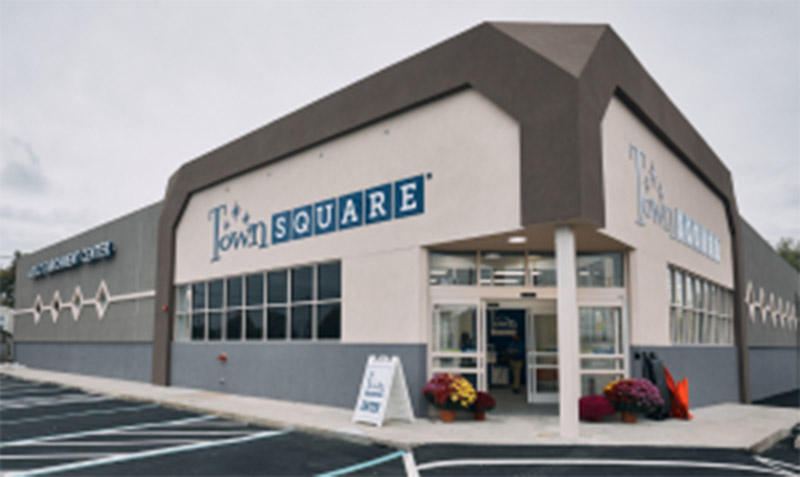“Franchisors understand that time kills deals,” says Mike Rozman, President of BoeFly, reciting an oft-used phrase especially applicable to the sometimes-drawn-out process of signing an agreement with a new franchisee. And it’s especially applicable to franchisee financing, which, if left until the tail end of the sales process, can delay and even derail a deal.
“Franchisors recognize this,” continues Rozman, “and because they also know they’re competing with more brands for qualified franchisees, if they can make the financing process easier and more transparent from the outset, they’re more likely to close the sale—and have an owner with the wherewithal to run the units.”
Rozman, whose company, BoeFly, helps franchisors qualify their applicants and also connects those candidates with lending options, notes the need to “reduce the friction” for franchisees is one reason why he’s seeing more brands create a cohesive approach wherein financing is embedded into the sales process.
“So the more the brand can develop an efficient, competitive process, the better off they’ll be,” he says.
The need for that process arose for Senior Helpers and CFO Rob Sharkey as the in-home senior care franchisor launches its Town Square model, a “reminisce therapy” concept providing programs for adults with dementia and Alzheimer’s disease. “While Senior Helpers franchisees can usually draw from their own savings or a 401k to finance the $120,000 in start-up costs,” says Sharkey, “the $1.2 to $1.7 million it takes to get a Town Square going “is a heavy investment level, so you really have to vet your partners, liquidity, net worth, etc.”
“A company such as BoeFly,” says Sharkey, “takes care of much of the ‘heavy lifting’ on the administrative and due diligence side for franchisors, and they do a lot of hand-holding and education, not only for the franchisee but also the lender, who may not be familiar with franchising or the Town Square concept.”
That education component is increasingly important for lenders, who are undertaking comprehensive due diligence and evaluating not just the franchisee but also the system as a whole.
“Lenders want to understand the franchisor,” says Rozman. “It’s ‘let me understand the unit economics of the franchise and understand the plans for growth.’”
As franchisors involve themselves more in franchisee financing, be it by facilitating connections to lenders or offering grants or other funding options to spur a remodel program, they must prepare for the accompanying scrutiny.
“From a lender perspective, you want to have an understanding of the brand and the strengths of that brand,” says Michael Vallorosi, President of Franchise Banking at Pacific Premier Franchise Capital. “Lenders need to understand the unit economics of that brand to understand whether to commit capital.”
“In addition to examining same-store sales performance, closure rates and location failures are also reviewed,” says Vallorosi. “And when it comes to financing a restaurant remodel program, for example, the franchise must be prepared to present the scope of the project, the number of stores involved, and, perhaps most importantly, the return on investment for the franchisee.”
“Nobody wants to get stuck with an albatross,” says Vallorosi, “where you’re spending $2 million and the sales coming out of it are $1 million.”
Before a franchisor brings something like a remodel program to lenders, however, Vallorosi encourages brands to first make sure their franchisees have a need for and interest in utilizing that financing. “I’d convene a small panel of franchisees to communicate and see what kind of buy-in there is before deploying resources,” he says.
Subway, which created a grant program that provides $10,000 for U.S. franchisees to help offset décor costs associated with its Fresh Forward and Fresh Start restaurant remodels, also worked with the financial services team at its franchisee-owned-and-operated Independent Purchasing Cooperative to create a network of lenders to help finance the remaining cost of the remodels. “The IPC has both national as well as regional lenders in their portfolio of lenders,” explains Kevin Kane, Subway’s Public Relations Manager.
“And they will work with and advise the franchise owners on applying,” Kane says.
“The result of these efforts by Subway,” says Kane, “is nearly 11,000 restaurants will be remodeled, “more than originally anticipated.”
“Lenders,” notes Vallorosi, “are tuned in to these efforts by franchisors and want to know how they’re supporting any given project. More broadly, as lenders, ‘we’re always trying to keep our pulse on what’s going on in the industry,’” says Vallorosi.
Are you ready to reduce the friction in your sales process? Complete the form to start learning more, or click here to review the original article.



